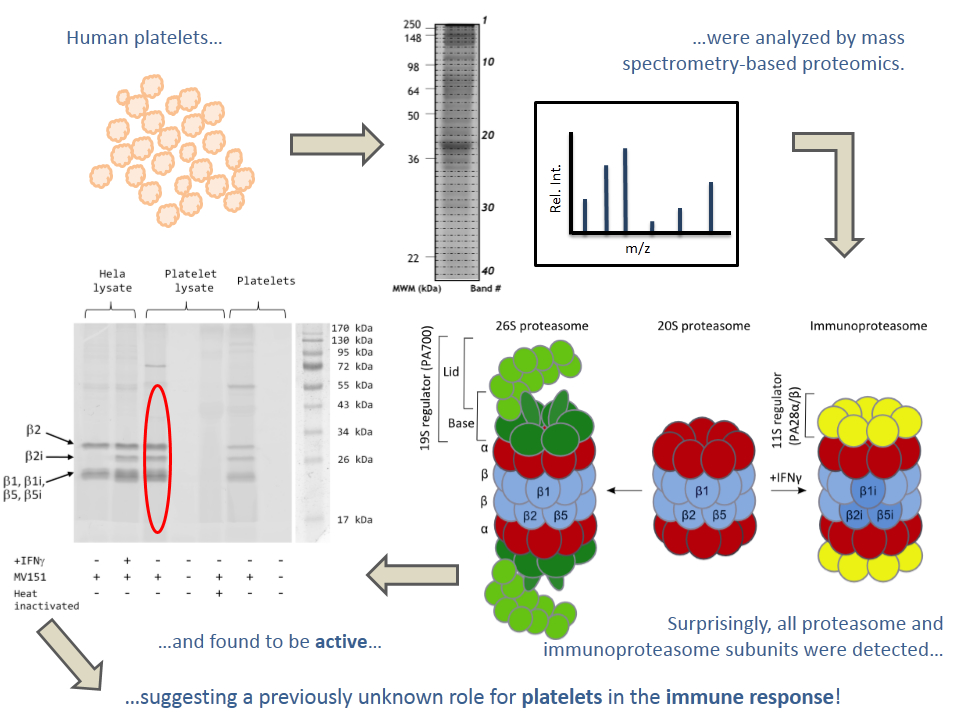Blood clotting was long thought to be the one and only function of platelets, but despite their small size and lack of a nucleus, new roles for platelets continue to emerge. Emerging from a platelet proteomic study that identified over 2500 proteins, work by Dr. Juergen Kast, a CBR researcher, recently led to the discovery that platelets have an active immunoproteasome, see paper. This unexpected finding suggests a novel purpose for platelets in the immune system. The proteasome is a ‘machine’ made up of many subunits. Its main function is to degrade proteins and it is found in all eukaryotic cells. There is a variant of the standard proteasome called the immunoproteasome. The immunoproteasome is constitutively expressed in immune cells and its expression can be induced in all other nucleated cells. The catalytic activity and function of the immunoproteasome is different to the proteasome – it plays a key role in the immune response and in peptide generation for major histocompatibility complex (MHC) I antigen presentation.

Figure by Cordula Klockenbusch
The immunoproteasome was not previously thought to exist in platelets, so it was surprising to see immunoproteasome subunits in the platelet proteomic study. Even more surprising was the finding that the immunoproteasome subunits are incorporated and constitutively active in platelets. This is the first time an active immunoproteasome has been described in anucleate cells and raises many questions: most importantly, what is the function of immunoproteasome activity in platelets? Platelets have a proteasome, but limited protein synthesis, and thus limited need to degrade proteins. Therefore, peptide generation for the immune response may be the major role of this proteasome/immunoproteasome machinery in platelets. The proteomics analysis revealed that almost all other proteins involved in MHC I antigen presentation were also found in platelets, suggesting a potential novel role for platelets in the immune system. As platelets are the first cells encountered by pathogens entering through vascular injuries, presenting antigens derived from intruders might be an important function of these blood components. This research adds to the growing body of evidence that platelets play a bigger role in the immune system than previously thought and suggests that these small cell fragments may have more surprises in store.
This study was published in the journal Molecular and Cellular Proteomics and was funded in part by grants from the Canadian Institutes for Health Research and the Natural Sciences and Engineering Research Council of Canada.
Contributed by Geraldine Walsh, Scientific Writer, Canadian Blood Services


